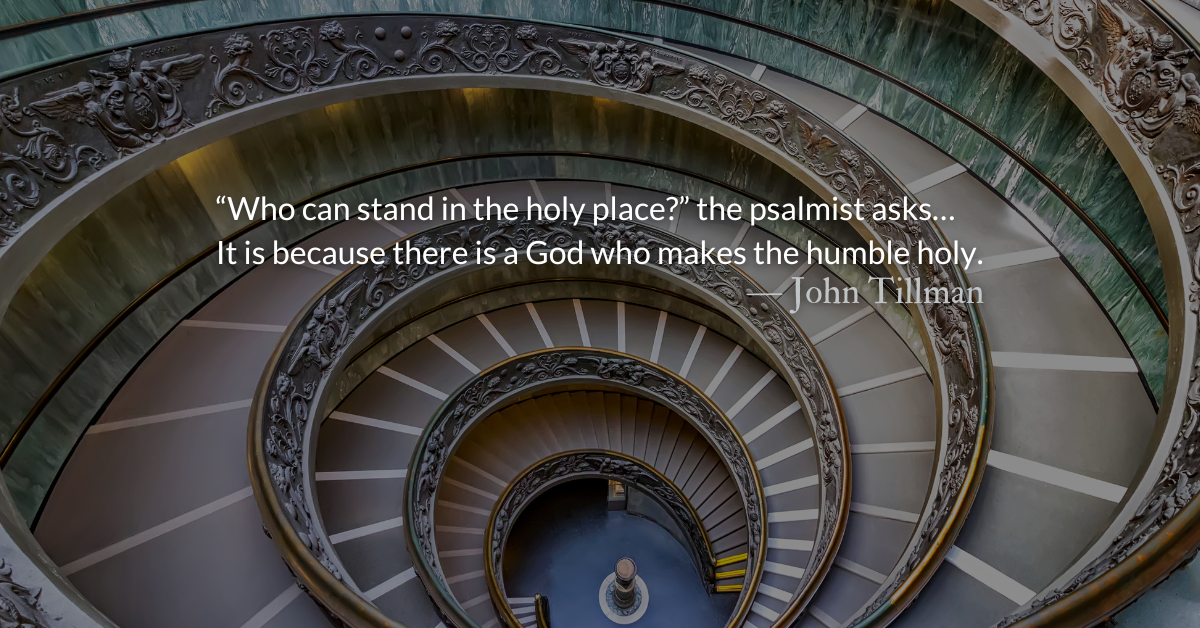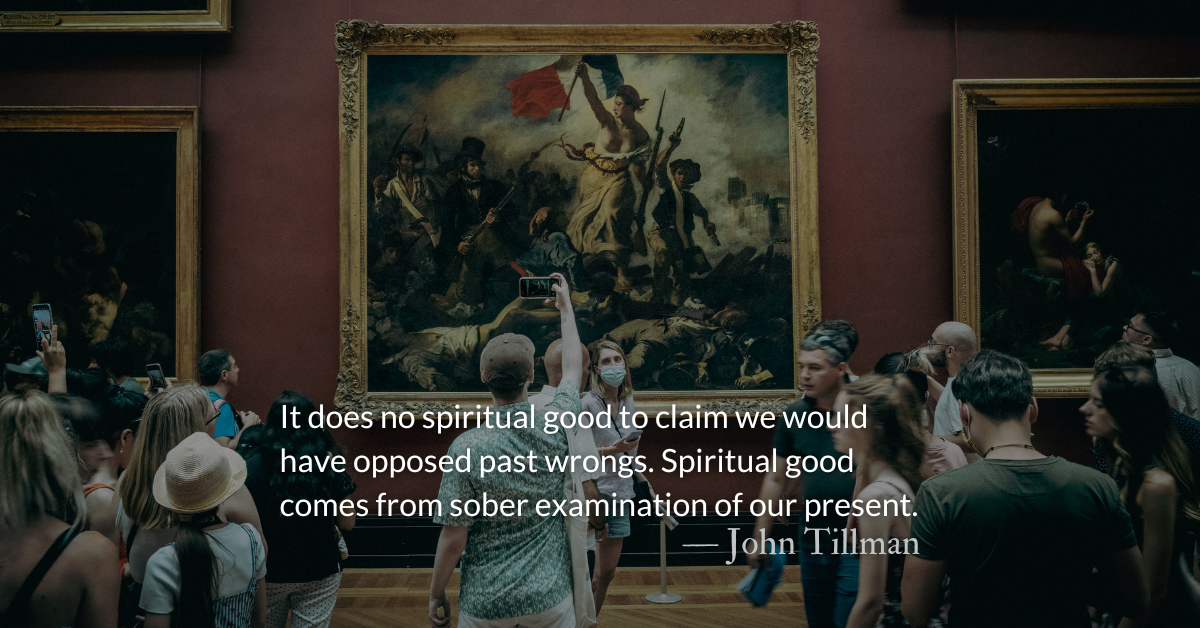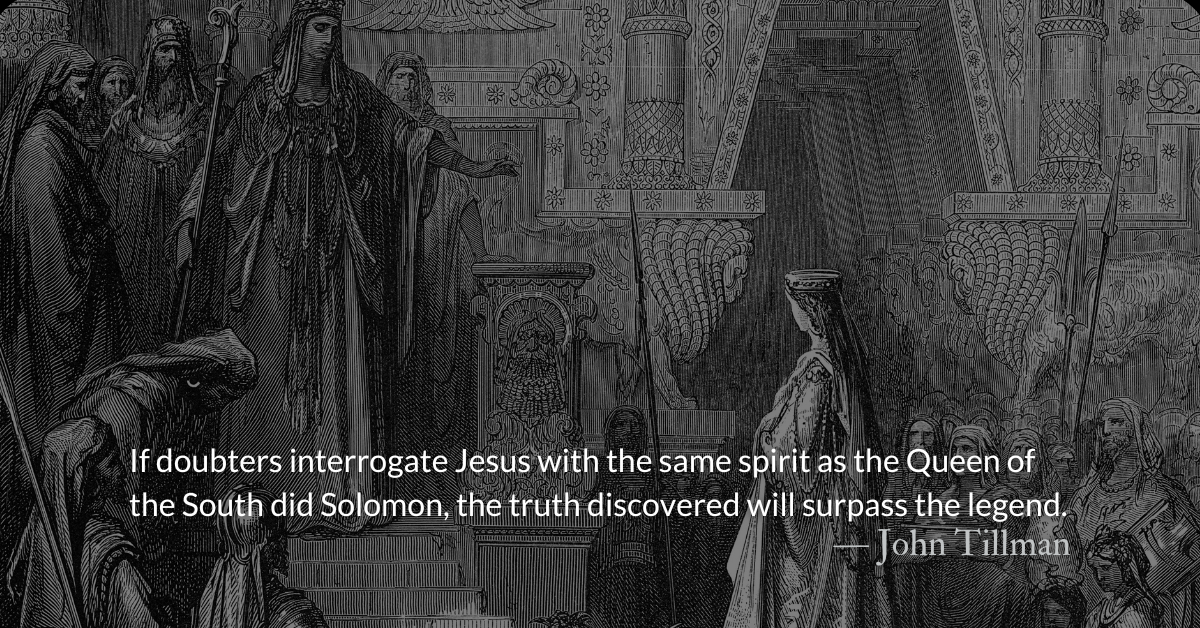Scripture Focus: 1 Kings 6.11-13
11 The word of the Lord came to Solomon: 12 “As for this temple you are building, if you follow my decrees, observe my laws and keep all my commands and obey them, I will fulfill through you the promise I gave to David your father. 13 And I will live among the Israelites and will not abandon my people Israel.”
Psalm 24.3-7
3 Who may ascend the mountain of the Lord?
Who may stand in his holy place?
4 The one who has clean hands and a pure heart,
who does not trust in an idol
or swear by a false god.
5 They will receive blessing from the Lord
and vindication from God their Savior.
6 Such is the generation of those who seek him,
who seek your face, God of Jacob.,
7 Lift up your heads, you gates;
be lifted up, you ancient doors,
that the King of glory may come in.
Reflection: Who May Ascend?
By John Tillman
It is not the Temple that causes God to live among his people. “Follow my decrees,” God says. “Observe my laws…keep my commands and obey them.” God will live among his people, not because the building is grand but because the people are holy.
God wants us, like Solomon, to build him a temple, a meeting place in our lives. Not a meeting place of gold but one of time. Not situated on top of a mountain but situated in the reading of his word. Not filled with cedar and incense but filled with his Holy Spirit. But how?
“Who can stand in the holy place?” the psalmist asks. Solomon is not holy. Neither was David. Neither are we. How can they or we be holy?
It is not because of our holiness or the holiness of a place that we may ascend the mountain of the Lord. It is because there is a God who makes the humble holy. We receive blessing and vindication from Jesus, the King of Glory.
He is the one who has clean hands that were pierced in our place.
He is the one who has a pure heart that was pierced in our place.
He is the one who would not trust in the idols offered to him:
He rejected the idol of physical appetites.
He rejected the idol of religious adoration.
He rejected the idol of the power of the nations.
He would not swear by false gods demanding he kneel:
He rejected the false god of making worship a commodity to be sold.
He rejected the false god of Ceasar’s coins and those of the Temple.
He rejected the false god of political machination and the false god of rebellious, retributive violence.
Jesus walked weary and weeping in Gethsemane so we can return, rejoicing and leaping to a new Eden.
Jesus ascended Golgotha, the mountain of death, so we can ascend the mountain of God to life.
Jesus broke open the ancient doors of death and Hell so we can enter freely the Heavenly gates of the Ancient of Days.
The blessings we receive and the vindication we win come through Jesus. Let us lean on the grace of Jesus, follow the example of Jesus, and trust the power of Jesus.
Once Jesus, the King of Glory, enters our gates, he lifts up our heads, and together we ascend.
Divine Hours Prayer: The Request for Presence
May God be merciful to us and bless us, show us the light of his countenance, and come to us. — Psalm 67.1
– From The Divine Hours: Prayers for Summertime by Phyllis Tickle.
Today’s Readings
1 Kings 6 (Listen 5:10)
Psalms 23-24 (Listen 2:03)
Read more about Neither Despair Nor Nostalgia
In many ways, Solomon’s era was the golden age of Israel’s covenant with God, but…In golden ages, we often find excesses that will bankrupt the future.
Read more about Gods of Ruin and Ridicule
The gods of this world bring ruin and ridicule. However, if we abide in Christ, we enjoy the benefit of God’s presence.











